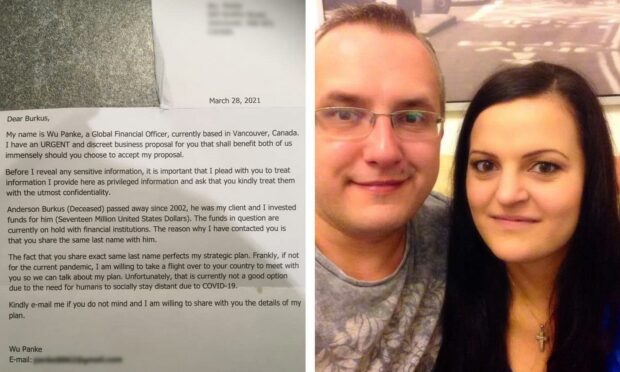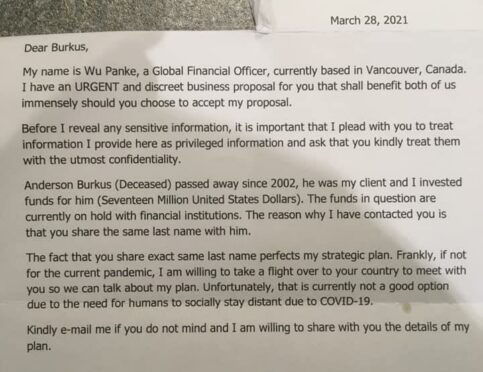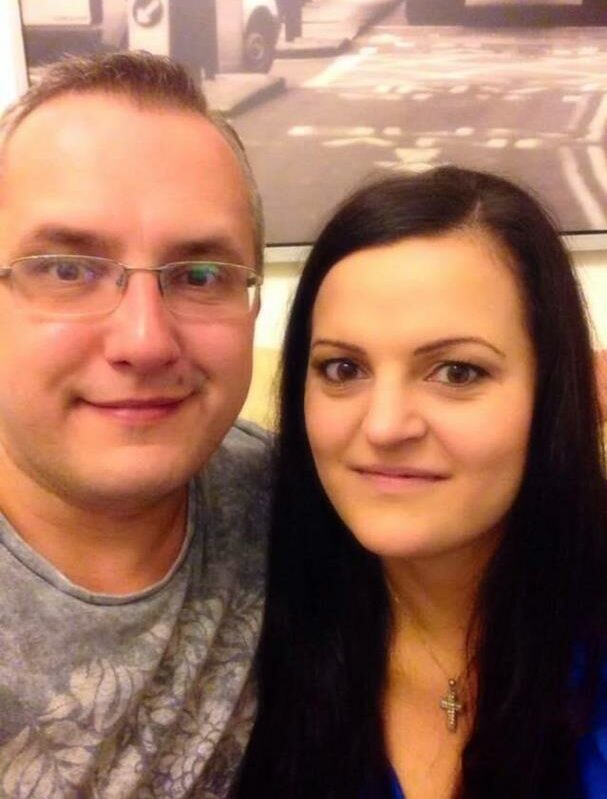A Crieff woman is urging others to be alert to scammers after receiving a letter offering her a share of $17 million.
Andrea Burkus and husband Laszlo received the letter, which contains their surname, earlier this week.
It claims to be from someone called Wu Panke, who calls themselves a “global financial officer” based in Vancouver, Canada.
The letter – which resembles inheritance fraud scams that are often sent by email – says the couple share a surname with a client of theirs who died in 2002.
It goes on to offer the chance to join a “strategic plan” to receive a share of the deceased’s $17m fortune.
The letter also says: “I am willing to take a flight over to your country to meet with you so we can talk about my plan.
“Unfortunately, that is currently not a good option due to the need for humans to socially stay distant due to Covid-19.”
It includes a plea for the couple to keep the contents of the letter private, and instructs them to contact the writer via an email address.
‘The letter was full of contradictions’
The pair were immediately suspicious of the letter due to the unusual location of the return address – a sports bar in Canada – the strange writing style and an old postage date.
They are now warning others to be wary of similar attempts of fraud.
Andrea said: “First of all, the letter was full of contradictions.
“The date on the letter was March 2021 and yet the ‘lawyer’ stated he posted it a few days ago.
“My knowledge about inheritance law, that this imaginary deceased family member should leave his money on my husband’s mother as next of kin, and my husband being a very sceptical person also helped.
“We found it funny, but my advice to others would be, don’t fall into the trap.
“These scammers are always trying to use human greed.
“Always look for official signs – stamp, the language of the letter etc.
“Don’t answer, even if you want to play and waste the scammer’s time.”
What to do if you are targeted by fraudsters
According to Action Fraud, the UK’s national reporting centre for fraud and cyber crime, if you receive such a letter or email you should:
- Report it to Action Fraud.
- End all further contact with the fraudsters.
- Don’t send them any more money.
- Don’t give them your bank details.
- If you have already given the fraudsters your bank account details, alert your bank immediately.
- If you receive any threats from the fraudsters once you have stopped co-operating with them, alert the police immediately.
- Be aware that you’re now likely to be a target for other frauds. Fraudsters often share details about people they have successfully targeted or approached, using different identities to commit further frauds.
- People who have already fallen victim to fraudsters are particularly vulnerable to the fraud recovery fraud. This is when fraudsters contact people who’ve already lost money through fraud and claim to be law enforcement officers or lawyers. They’ll advise the victim that they can help them recover their lost money – but request a fee.


